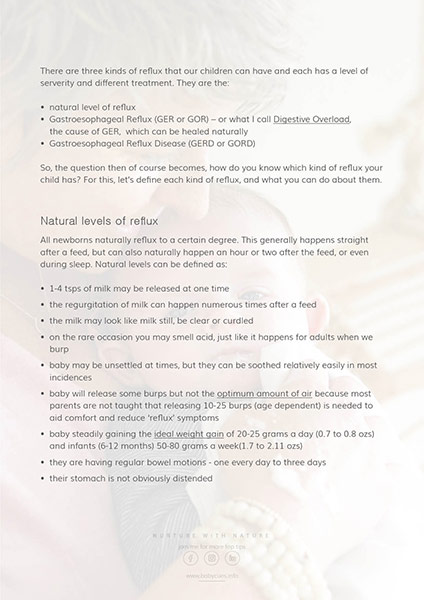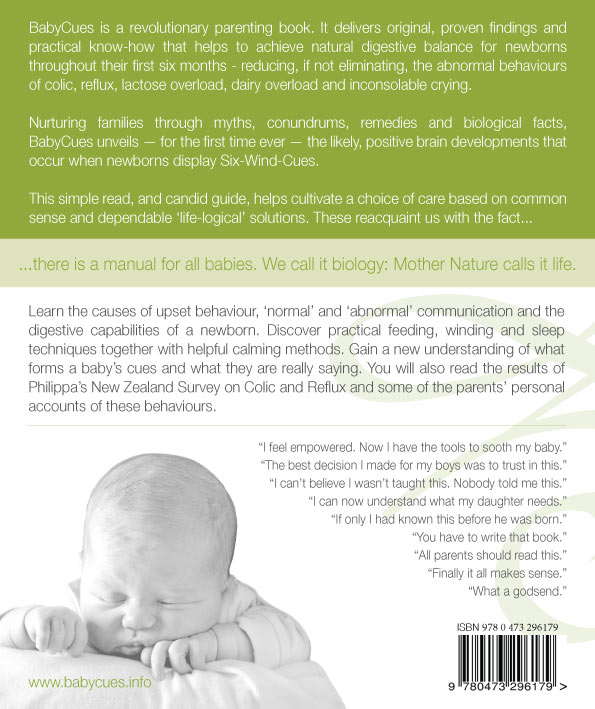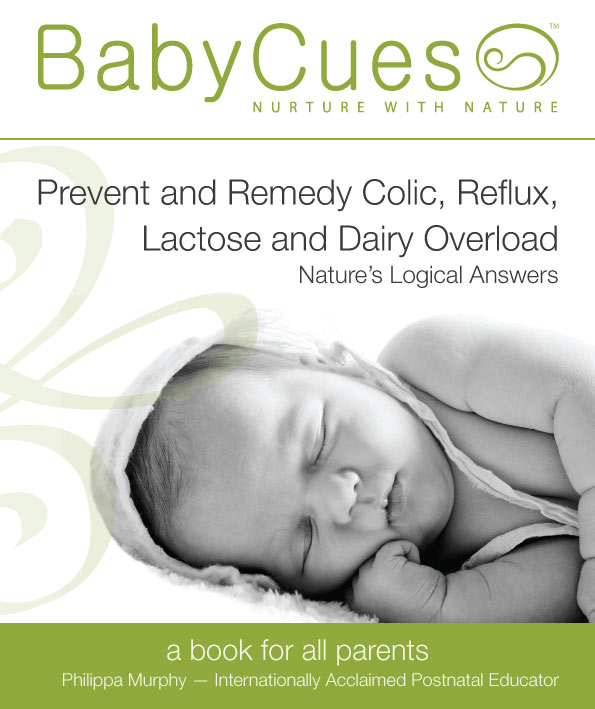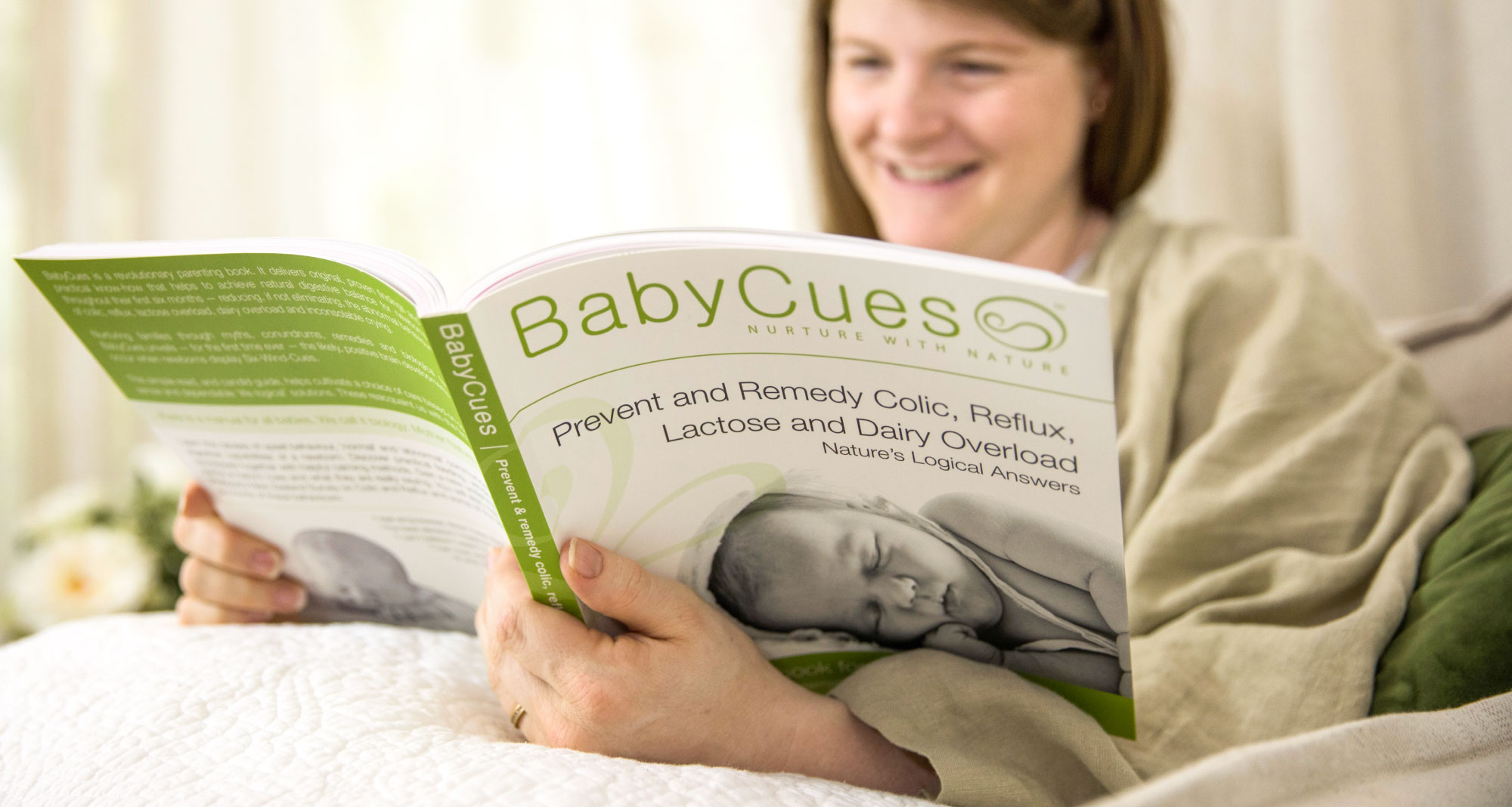Acid Inhibitors - are they needed for infant reflux?

Every day, around the globe, there are understandably worried stressed-out parents arriving at their doctor's office asking for advice and help to stop their baby's reflux symptoms.
Every day, there are also well-meaning doctors, walking our infants down the set pathway of alginates first, perhaps changes in formula, and then, if not straight away, the infant will be prescribed acid inhibitors.
Every day, there are some not so well-meaning pharmaceutical companies making billions of money off the estimated 90million infants that are unnecessarily suffering, while depicting that acid is the CAUSE for ALL the discomfort, so the production of acid must be stopped. When actually the potential acid moving up the oesophagus is A SYMPTOM FROM THE CAUSES. Causes that can be healed naturally.
And every second, there are parent’s reluctantly going beyond their intuition and wishes, using these acid inhibitors, because they feel they have no other options. Praying that this time, this time, this intervention will help their baby’s pain.
Perhaps this is you? Or a family you know?
If so, I would love you to know that…
We don't have to compromise our wishes to not use acid inhibitors because, for the majority of infants, there is another way for healing and it’s all natural!
Let's look at this logically…
Parents are being told the physiological non-truth that one of the major causes of their child’s reflux is that they have an immature sphincter muscle and this has them regurgitating acid up their oesophagus. Now for those of you that don’t know about the lower sphincter muscle (LES) it is a high-pressure zone located where the oesophagus meets the stomach and protects the oesophagus from the reflux of gastric contents. In other words, it’s a valve that holds your baby’s milk, food and often trapped air in their tummy. However, if “an immature sphincter muscle is the cause” then logically I wouldn't be able to heal reflux and silent reflux naturally, like I do within my clinical daily practice.
Also, one might also conclude that all newborns would be screaming in pain from this, given it is projected that this is how we are born.
Keep reading for the research The three types of reflux advert...
The three types of reflux
Unravel the confusion around reflux. Define your child's symptoms and learn the overview of treatment that could be best for them.


- Define reflux
- Symptoms for each kind of reflux
- Overview of treatment


WHAT'S INSIDE
- Define reflux
- Symptoms for each kind of reflux
- Overview of treatment
What the research says...
Gastroesophageal reflux is a common phenomenon in infants, but the differentiation between gastroesophageal reflux and gastroesophageal reflux disease (GERD or GORD) can be difficult1 and are now consistently being projected as the same thing. However, if an infant is failing to thrive (so not meeting their required weight gain) bringing up a considerable amount of their milk, at once after every feed while being fed their physiological amounts, then this child may need the appropriate testing to define GERD/GORD.
For years now there has been increasing evidence that the majority of symptoms may not be acid-related. Despite this, gastric acid inhibitors such as proton pump inhibitors are widely and increasingly used, often without objective evidence or investigations to guide treatment.1
Several studies have shown that these medications are ineffective at treating symptoms associated with reflux…With a lack of evidence for efficacy, attention is now being turned to the potential risks of gastric acid suppression, with evidence of potential side effects including GI and respiratory infections, bacterial overgrowth, adverse bone health, food allergy and drug interactions.1
Additionally, although it has been proven that omeprazole is effective at reducing gastric acidity and oesophageal acid exposure in infants, there is significant evidence that it is not effective in treating symptoms attributed to infant reflux or GERD. In other words, yes acid inhibitors shut of the acid in the stomach, thus stopping this acid from entering your infant's esophagus, but they do not treat the symptoms of reflux or silent reflux.2
A study of 162 infants aged one to twelve months, found there was no difference in the efficacy of lansoprazole or placebo, in alleviating symptoms attributed to GORD, including; crying, regurgitation, feeding difficulties, back arching, coughing and wheezing.3
Another two studies investigating the effects of omeprazole on infant irritability and reflux found that, while treatment groups had significantly reduced oesophageal acid exposure (so the drug doing what it does - stopping the acid rather than the reflux symptoms and the real causes) there was no difference in irritability or crying.4,5
Keep reading to learn how to heal this after this advert for my best selling Prevent and Remedy Reflux Naturally Book...
Get the help you need
Hailed as a game changer, life-saver and a must read from parents and postnatal professionals, this self-help book truly has the answers that NATURALLY prevent and heal the symptoms of colic, reflux, silent reflux, the witching hour and lactose and dairy overload - aka Digestive Overload, the true cause of these symptoms.


- nurture your child's digestive system
- Burp your baby to comfort
- Understand their Six-Wind-Cues
- Calm baby with techniques that work


LEARN HOW TO
- nurture your child's digestive system
- Burp your baby to comfort
- Understand their Six-Wind-Cues
- Calm baby with techniques that work
Despite this research...
- From 2000 to 2003, there was a 4-fold increase in off-label PPI prescriptions in this age-group, despite less than 10% of patients being investigated for GORD by diagnostic procedure.6
- In France, 6.1% of children younger than two years used PPIs in 2019, up from 3.6% in 2010.7
- In the first year of life, prevalence of PPI use increased from 2.4% to 5.2% between 2005 and 2012 in New Zealand.8
- prescription rates were 1.9% in Sweden, 2.3% in Norway, and 4.6% in Denmark in 2020, a 3- to 5-fold increase since 2000.9,10
There is a concerning increase with a presumed diagnosis of GORD based on symptoms alone in the absence of any objective measures for the diagnosis of GORD including pH and impedance monitoring or gastroscopy and biopsy11. Despite these recommendations, studies have found very poor adherence to guidelines and significant overtreatment with PPIs12. I have found the same in clinic. Despite the fact that many of the infants I see do not even meet the criteria for GORD (Gastroesophageal Reflux Disease) they have been prescribed acid inhibitors and sometimes at a dosage that is highly concerning.
Healing the real causes...
For our infants, unlike adults, the rebalancing required to heal the symptoms can involve a number of different, intricate causes that often create short-term symptoms when the rebalancing occurs, with these symptoms however, stepping an infant toward continual comfort, rather than continually being on the cyclic wheel of Digestive Overload – the real cause of Gastroesophageal Reflux or what is called “reflux” or “silent reflux”
So, if you’d like to decipher the natural causes that may have your infant digestively unbalanced, along with understanding how to rebalance these causes with natural methods and remedies that will ease their transition to comfort, and if you decide, the potential withdrawal of acid inhibitors, then I'm available for 1:1 consultations. Or feel free to join my BabyCues Infant Gut & Maternal Health Community where I hold exclusive live Q & A's each month and you can feel more held.
The majority of infants have Gastroesophageal Reflux, according to many studies, can be healed naturally through the rebalancing of digestive health.

- Safe M, Chan WH, Leach ST, Sutton L, Lui K, Krishnan U. Widespread use of gastric acid inhibitors in infants: Are they needed? Are they safe? World J Gastrointest Pharmacol Ther. 2016 Nov 6;7(4):531-539. doi: 10.4292/wjgpt.v7.i4.531. PMID: 27867686; PMCID: PMC5095572.
- BpacNZ - Best Practice Journal; Irritable Infants Reflux and GORD (GERD)
- Orenstein S, Hassall E, Furmaga-Jablonska W, et al. Multicenter, double-blind, randomized, placebo-controlled trial assessing the efficacy and safety of proton pump inhibitor lansoprazole in infants with symptoms of gastroesophageal reflux disease. Pediatrics 2009;154(514-20).
- Moore D, Tao B, Lines D, et al. Double-blind placebo-controlled trial of omeprazole in irritable infants with gastroesophageal reflux. J Pediatr 2003;143:219-23.
- Omari T, Haslam R, Lundborg P, Davidson G. Effect of omeprazole on acid gastroesophagel reflux and gastric acidity in preterm infants with pathological acid reflux. J Pediatr Gastroenterol Nutr 2007;44(1):41-4.
- Barron JJ, Tan H, Spalding J, Bakst AW, Singer J. Proton pump inhibitor utilization patterns in infants. J Pediatr Gastroenterol Nutr. 2007;45:421–427.
- Taine M, Offredo L, Dray-Spira R, Weill A, Chalumeau M, Zureik M. Paediatric outpatient prescriptions in France between 2010 and 2019, a nationwide population-based study: paediatric outpatient prescriptions in France, 2010 to 2019. Lancet Reg Health Eur. 2021;7:100129. doi: 10.1016/j.lanepe.2021.100129
- Blank ML, Parkin L. National study of off-label proton pump inhibitor use among New Zealand infants in the first year of life (2005-2012). J Pediatr Gastroenterol Nutr. 2017;65(2):179-184. doi: 10.1097/MPG.0000000000001596
- Aznar-Lou I, Reilev M, Lødrup AB, Rubio-Valera M, Haastrup PF, Pottegård A. Use of proton pump inhibitors among Danish children: a 16-year register-based nationwide study. Basic Clin Pharmacol Toxicol. 2019;124(6):704-710. doi: 10.1111/bcpt.13191 [PubMed] [CrossRef] [Google Scholar]
- Lyamouri M, Mårild K, Gaardskaer Nielsen R, Størdal K. Proton pump inhibitors for infants in three Scandinavian countries increased from 2007 to 2020 despite international recommendations. Acta Paediatr. 2022;111(11):2222-2228. doi: 10.1111/apa.16491
- Malcolm WF, Gantz M, Martin RJ, Goldstein RF, Goldberg RN, Cotten CM. Use of medications for gastroesophageal reflux at discharge among extremely low birth weight infants. Pediatrics. 2008;121:22–27. [PubMed] [Google Scholar]
- Quitadamo P, Papadopoulou A, Wenzl T, Urbonas V, Kneepkens CM, Roman E, Orel R, Pavkov DJ, Dias JA, Vandenplas Y, et al. European pediatricians’ approach to children with GER symptoms: survey of the implementation of 2009 NASPGHAN-ESPGHAN guidelines. J Pediatr Gastroenterol Nutr. 2014;58:505–509. [PubMed] [Google Scholar]



 Submitting data
Submitting data